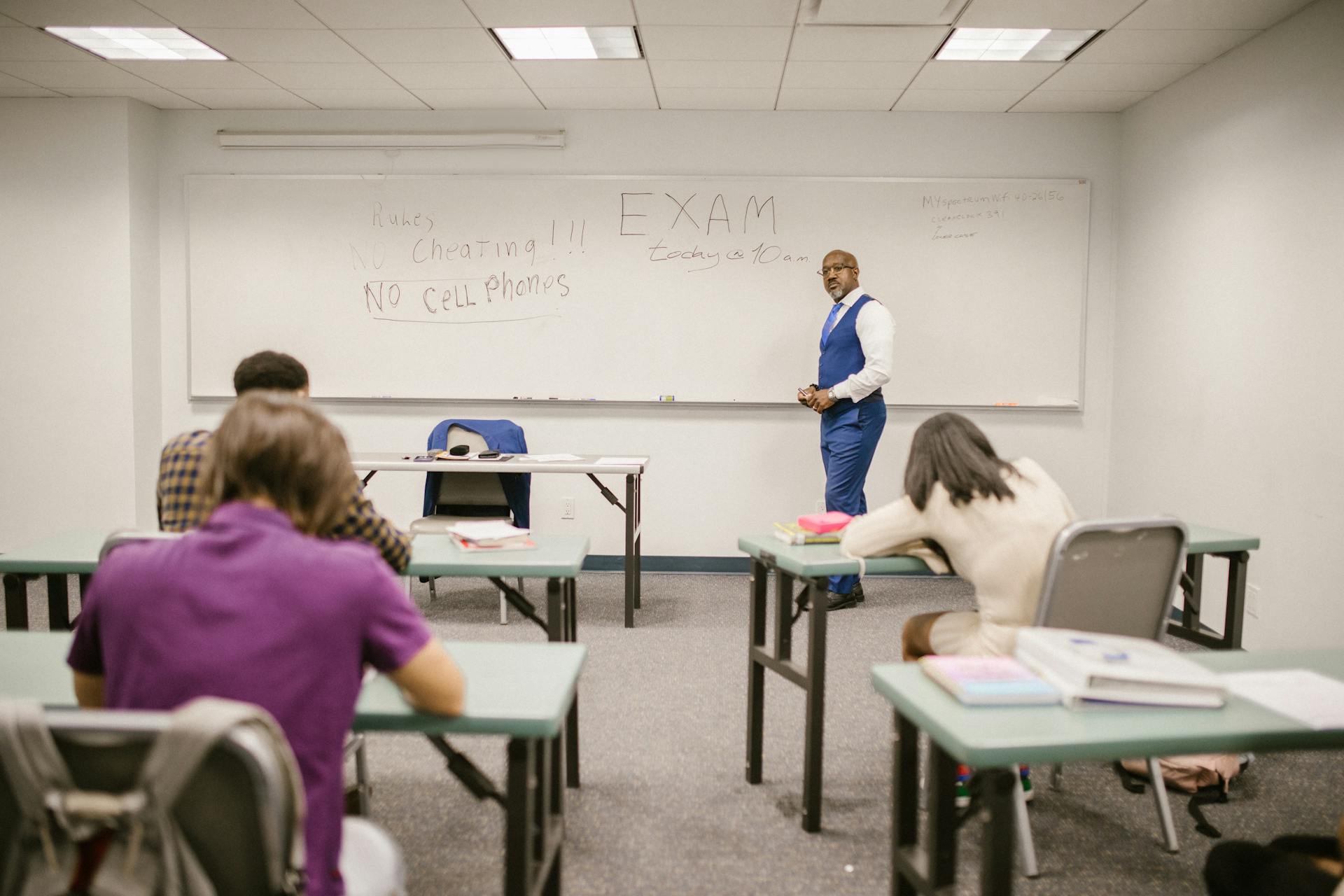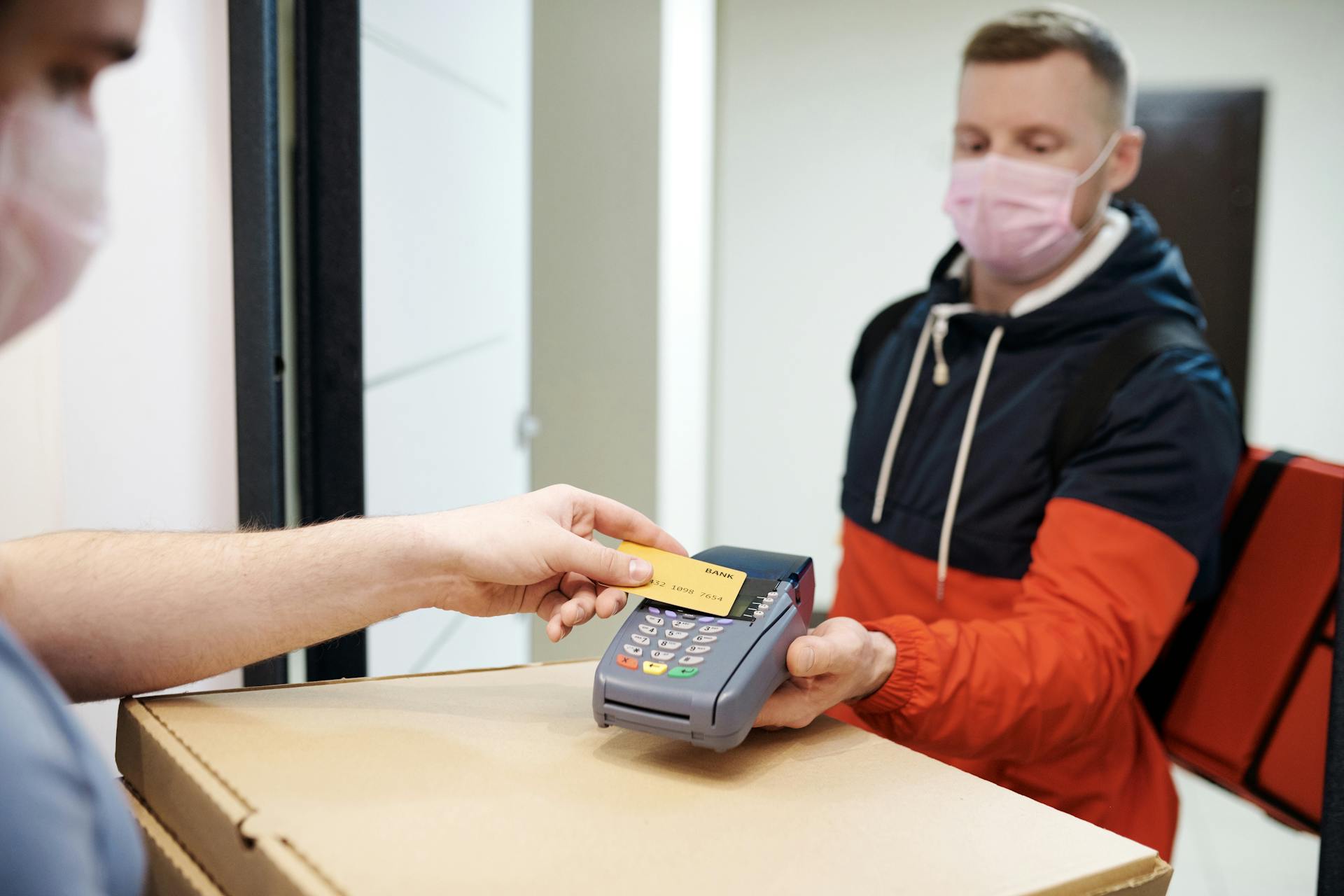
Making mistakes is one of the most common occurrences in both personal and professional lives. While we all try to avoid them, they are bound to happen every now and then. When it comes to a work setting, making a mistake professionally can be embarrassing, especially if it affects your colleagues or clients. However, what sets apart professionals from others is how they handle such situations.
A strong working relationship with colleagues or clients is crucial for achieving success in any industry. Apologizing for a mistake professionally can go a long way in maintaining that relationship. Not only does it show accountability, but it also displays that you value the person on the receiving end. Taking action learning from your error and moving forward can also help prevent similar mistakes from happening again in the future.
In-person apologies are always preferred when possible as they convey sincerity and allow for nonverbal cues such as eye contact and body language to be expressed. However, there are times when sending an email or making a phone call might be the only option available. No matter what method you choose, knowing how to apologize professionally can make all the difference in repairing relationships and moving forward positively. In this article, we will discuss some examples of how to apologize for a mistake professionally in various settings.
Why is it important to apologize?
Apologizing is crucial in the professional world, especially when a mistake has been made. Whether it's work missed or an important deadline that was not met, taking responsibility for one's actions and displaying uncharacteristic behavior can go a long way in maintaining trust and credibility with colleagues and clients. Apologizing shows humility, integrity, and a willingness to learn from mistakes, making it an essential skill for anyone looking to succeed in their career.
1. Show you acknowledge your actions
When we make a mistake professionally, it's important to acknowledge our actions. This means taking responsibility for what we did wrong and apologizing if necessary. It also means making a plan to prevent similar mistakes from happening in the future. Acknowledging our mistakes not only shows integrity but can also directly affect how others view us in the workplace. So, let's own up to our mistakes and work late if necessary to make things right.
2. Help rebuild trust
Making a mistake professionally can break trust with peers and colleagues, but there are ways to rebuild it. Being transparent about the mistake and taking responsibility helps improve trust. Working towards becoming a productive creative team-orientated member of the entire workplace can also show dedication towards earning back trust.
3. Decrease workplace stress
Decreasing workplace stress can be done by addressing mistakes professionally. When negative feelings arise due to a mistake, apologizing with a sincere apology can ease conflict and maintain a productive work environment. By building strong relationships with colleagues and ensuring that our managers have accepted our mistake, we can avoid unnecessary workplace stress and foster positive workplace relationships.
4. Improve communication
Improving workplace communication is key to avoiding future issues caused by mistakes made professionally. Open and honest dialogue between colleagues creates a collaborative environment where issues can be addressed and resolved before they escalate. By actively working on improving communication, you can prevent misunderstandings and foster a more productive work environment.
Why Not Apologizing Can Have Serious Consequences?
Why Not Apologizing Can Have Serious Consequences? When we make a mistake professionally, the easiest way to diffuse the situation is to apologize. However, not apologizing can lead to serious consequences. This includes damaging professional relationships, losing trust and respect from colleagues or clients, and even getting fired. By owning up to our mistakes and apologizing, we show accountability and responsibility for our actions, which can ultimately help rebuild trust and prevent future mistakes from happening.
1. Damage relationships
Mistakes happen, it's a fact of life. However, when a mistake is made professionally, it can damage an existing working relationship. Forming, apologizing and forgiving for the mistake can lead to building stronger relationships and allowing teams to work cohesively. It's important to take responsibility for the mistake and learn from it in order to build good working relationships in the future.
2. Limit career opportunities
Making a mistake professionally can limit your career opportunities. It's important to recognize that mistakes will happen, but it's how you handle them that matters. A sincere effort to learn from the mistake and work with your management team to prevent it from happening again can lead to growth opportunities, such as lateral moves within the company. Don't let a mistake hold you back, use it as an opportunity to improve and advance in your career.
3. Give incorrect impressions
Making a mistake professionally can lead to giving the incorrect impression about your abilities and work ethic. It's important to take responsibility for your mistake and express remorse, but don't let it define you. Instead, use it as an opportunity to learn and grow, and show that you can work alongside others to make things right.
4. Show a lack of integrity
Making a mistake professionally is not uncommon. However, when someone tries to cover up their mistake instead of owning up to it, they show a lack of integrity. Integrity in the workplace means being honest and transparent about one's actions. Apologizing demonstrates accountability and a willingness to make things right. In this article, we will discuss how lacking integrity can negatively affect your professional reputation and provide tips on how to handle mistakes with grace.
How to Make Effective Apologies in the Workplace
Making mistakes at work is inevitable, but knowing how to handle them professionally can make all the difference. When it comes to apologizing in the workplace, it's important to pay special attention to your body language and professional stance. Avoid crossing your arms or legs and use direct eye contact when speaking with your colleagues.
To effectively communicate your apology, avoid statements that place blame on others and instead take responsibility for your actions. Use exact words when expressing remorse and eliminate distractions by finding a private space for the conversation, like an empty conference room. This will allow for an open dialogue and help prevent misunderstandings.
When sincerely apologizing privately, be conscious of individual differences in communication styles. Take into account nonverbal cues and the feeling of defensiveness that may arise, as this can impact candidate assessments of you in the workplace. By taking these steps, you can create a good impression and maintain positive relationships in both your personal and professional life.
Mastering the Art of Professional Apology for Mistakes

Mastering the Art of Professional Apology for Mistakes is essential in any field of work. Making a mistake professionally can happen to anyone, but owning up to it and apologizing can make all the difference. A sincere apology can help rebuild trust and respect with colleagues, clients, or customers. It's important to acknowledge the mistake, take responsibility for it, explain how it happened, and offer a solution for the future. By mastering this art, you can turn a negative situation into a positive one and show your professionalism in difficult times.
1. Apologize immediately
When you make a mistake professionally, it's important to apologize immediately. Your manager brings negative outcomes to an uncomfortable workspace, and your return productivity may suffer. Justified acting quickly shows that you are a responsible employee who is willing to make amends. Normal apologizing promptly can prevent further damage and help get things back on track.
2. Plan your apology
When it comes to making mistakes professionally, it's essential to plan your apology. Apologizing is not always easy, but doing so can reduce stress and help you smoothly determine the best way to move forward. Whether you're apologizing for being a few minutes late or a bigger mistake, taking the time to plan what you want to say and how you'll say it can make all the difference. Remember that apologizing for smaller mistakes can also convey that you're making efforts to improve in the future.
3. Acknowledge the mistake and accept responsibility
When it comes to mistakes in the workplace, the best course of action is to acknowledge the mistake and accept responsibility. Taking responsibility shows that you are a professional who is willing to learn from their mistakes and grow. Your actions show your colleagues and superiors that you are accountable for your work, which can build trust and respect in the workplace.
4. Validate the other person's emotions
When you make a mistake professionally, it's important to validate the other person's emotions. Acknowledge their feelings and let them know that you understand how they are feeling. Accepting responsibility for your actions and validating their emotions shows maturity and helps create a more positive work life by acknowledging that mistakes happen and making sure the other person feels heard.
5. Make plans for moving forward
When we make a mistake professionally, it's important to take ownership of the current mistake and show accountability by apologizing. Making a concrete plan for moving forward will demonstrate that you're committed to ensuring the same error doesn't happen again. Explaining what happened and why it happened makes it easier for others to understand where you're coming from. Writing an apology letter is also a great way to show sincerity and regret for the mistake. Remember, making an error shows that you're human, but how you handle it will define your character in the workplace.
Mastering the Art of Apologizing for a Professional Mistake

Mastering the art of apologizing for a professional mistake is an essential skill for anyone in the workforce. It shows accountability and responsibility, which are highly valued traits in any profession. When making a mistake professionally, it's important to acknowledge and take ownership of the error, offer a genuine apology, and make efforts to rectify the situation. Doing so can not only salvage relationships with colleagues or clients but also demonstrate your professionalism and commitment to excellence.
1. Shows acceptance of wrongdoing
Accepting responsibility for a mistake professionally shows maturity and a willingness to learn. A sincere apology accepting one's wrongdoing can go a long way in conflict resolution and repairing relationships. Acknowledging how the mistake affected others and taking action to rectify it is key to moving forward and preventing future errors.
2. Maintains relationships
Maintaining professional relationships is important in any workplace. We all make mistakes professionally, but it's how we handle them that counts. If you've made a mistake that has affected your fellow employees, take responsibility for your actions and move forward by apologizing and making amends. By doing so, you'll feel content knowing that you're taking the right steps towards moving past the mistake and maintaining those important professional relationships.
3. Rebuilds trust
Making a mistake professionally can be career making or breaking. However, it's not the end of the world. Owning up to your mistake and offering a formal apology can go a long way in rebuilding trust with your fellow employees. This can increase productivity and provide healthier work relationships leading to an efficient work environment where everyone functions efficiently trusting each other.
4. Apologizing can relieve stress
Apologizing for a mistake professionally can be a game-changer. Not only does it reduce stress, but it also prevents any unneeded stress from coming forward. When managers forgive, it's not only a confidence boost but also an opportunity to move forward in your career. Don't underestimate the power of a sincere apology - it could make all the difference.
5. Apologizing makes others feel heard
The main point of apologizing is to make people feel heard and acknowledged. When we make a mistake professionally, our actions can affect our co-workers' feelings. Apologizing shows that we understand the impact of our actions and validates their emotions. Want to learn more about the importance of apologizing in the workplace? Keep reading!
Mastering the Art of Apologizing in the Workplace
Mastering the art of apologizing in the workplace is crucial for maintaining healthy relationships with colleagues and superiors. An effective apology should be timely, sincere, and specific. Timing is everything; apologize as soon as possible after making a mistake. Ensure that your apology shows genuine remorse for your actions and highlights what you will do to prevent the same mistake from happening again. Being specific about what you did wrong shows that you understand the impact your actions had on others and are willing to take responsibility for them.
1. Apologize soon after the incident
When you make a mistake professionally, it's important to apologize soon after the incident. By doing so, you can prevent the situation from escalating into a larger issue that could damage your working relationship with the involved parties. It also allows you to assess the situation and potentially prevent a larger escalation by acknowledging your error and taking steps to rectify it. Don't underestimate the power of apologizing – it can go a long way in preserving relationships and resolving conflicts.
2. Decide how you'll apologize
When it comes to apologizing for a professional mistake, deciding how you'll apologize is essential. Generally, an in-person apology is the most effective communication method since people perceive it as more sincere than a phone call or email. However, misinterpretations can occur, helping make a phone call or email a better option. Regardless of the method chosen, an apology should be thought out and genuine to help resolve the situation at hand.
3. Address your recipient by name
Addressing your recipient by name is an important aspect of professional communication. Whether you are addressing a peer, manager, or client, using their name adds sincerity and shows that you value them as an individual. Failing to do so can make your actions affected and may lead to misunderstandings in the workplace. Make it a habit to address others by their names and watch how it positively impacts your professional relationships.
4. Apologize with sincerity
When you make a mistake professionally, it's essential to apologize with sincerity. An insincere apology can give the wrong impression and damage your working relationship with colleagues who may have inadvertently affected. Instead, initiate an open conversation with them and offer a sincere apology that shows you understand their perspective and are committed to making things right.
5. Validate how the other person feels
When we make mistakes professionally, it's important to remember that the other person is likely feeling disappointed or frustrated. Validating how the person feels can make a large difference in how they perceive us and our actions. By acknowledging their emotions and letting them know that we completely understand their position, we can work towards finding a solution together.
6. Admit to your responsibility
Admitting to your responsibility is crucial when making a mistake professionally. Making excuses won't change the fact that your actions affected the situation negatively. It's important to take ownership of your mistake, understand how it impacted any professional relationships involved, and work towards making a positive difference in the future. By doing so, you can avoid similar situations and emphasize the workplace importance of taking accountability for one's actions.
7. Explain how you plan to correct the mistake
When we make mistakes professionally, it's essential to have a plan in place to correct them. The first step is to assess the situation completely and determine the largest impact of the mistake. From there, we can make things right by taking responsibility and providing clients with proper notice. It's important not to forget deadlines and to explain any important deadlines that may have been missed due to our error. By being proactive and transparent, we can regain trust and prevent similar mistakes from happening in the future.
8. Keep your commitments
Keeping your commitments is crucial in building a cohesive professional relationship. Promises failing can have negative consequences, both personally and for the company. However, fulfilling your commitments has positive benefits, such as gaining trust and respect from colleagues and clients.
Examples of professional apologies

When it comes to making mistakes professionally, apologies are essential. Some examples of professional apologies include admitting fault, taking responsibility for the mistake, and expressing sincere regret. It's important to acknowledge the impact of your mistake and communicate clearly how you plan to rectify the situation. A well-executed apology can go a long way in repairing damaged relationships and maintaining trust with colleagues and clients alike.
1. In-person apology
If you've made a mistake professionally and it's had a harmful effect on someone else, offering an in-person apology is always the best approach. Take responsibility for your actions yesterday and acknowledge that you mistakenly allowed your personal frustrations to affect your behavior. Remember that unacceptable behavior can damage the good working relationship you've built with others, so make it a personal goal to balance your work-life better in future. By taking ownership of your actions, you can help ensure a positive workplace for all.
2. Example of a work apology email
If you've ever made a mistake professionally, you may have had to send an apology email. One example could be apologizing for a missed due date on a joint project with Mr. Jones. In the email apology, it's important to take full responsibility for the mistake and acknowledge any expectations including the due date additionally. By doing so, you can show that you understand the gravity of the situation and are taking steps to ensure it doesn't happen again in future projects. A well-crafted apology email can help you move past the mistake and regain trust with colleagues like Melanie Malone or Brandon.
Preventing Negative Outcomes through Apologies
"Preventing Negative Outcomes through Apologies" is crucial in the professional world. Mistakes happen, and it's essential to own up to them and apologize sincerely. A genuine apology can prevent negative outcomes such as losing a customer, damaging a reputation or even getting fired. It's important to acknowledge the mistake, take responsibility for it, express remorse and offer solutions to rectify the situation. By doing so, you're showing integrity and professionalism, which can go a long way in mitigating the impact of your mistake.
1. Damaged work relationships
Damaged work relationships can have a negative impact on the overall work environment and productivity. A healthy work environment requires strong work relationships, so it's important to avoid harming them in any way. If you do make a mistake professionally, apologize and take steps to heal affected relationships. Choosing to prioritize relationship-building can ultimately lead to a more successful and positive workplace.
2. Preventing new opportunities
Making a mistake professionally can prevent new opportunities if not handled correctly. However, it can also be a rewarding experience if one understands that rewards come with apologizing and taking responsibility for their actions. Showing management that you are willing to learn from your mistakes and take full responsibility for them is an essential part of professional growth, as responsibility apologizing shows integrity and willingness to improve.
Frequently Asked Questions
What are some tips for apologizing?
When apologizing, be specific and take responsibility for your actions, express empathy and understanding for how your actions affected the other person, and offer a plan for how to make things right.
How do you say sorry for a mistake?
To say sorry for a mistake, first acknowledge what you did wrong and take responsibility for it. Then apologize sincerely and offer to make things right if possible.
What is a good way to apologize for a mistake?
A good way to apologize for a mistake is by acknowledging your wrongdoing, expressing remorse, and making amends. This shows that you take responsibility for your actions and are willing to make things right.
How do you show remorse for a mistake?
To show remorse for a mistake, you should first take responsibility for your actions and apologize sincerely. Then, make amends by taking corrective action to rectify the situation and prevent it from happening again.
Featured Images: pexels.com


